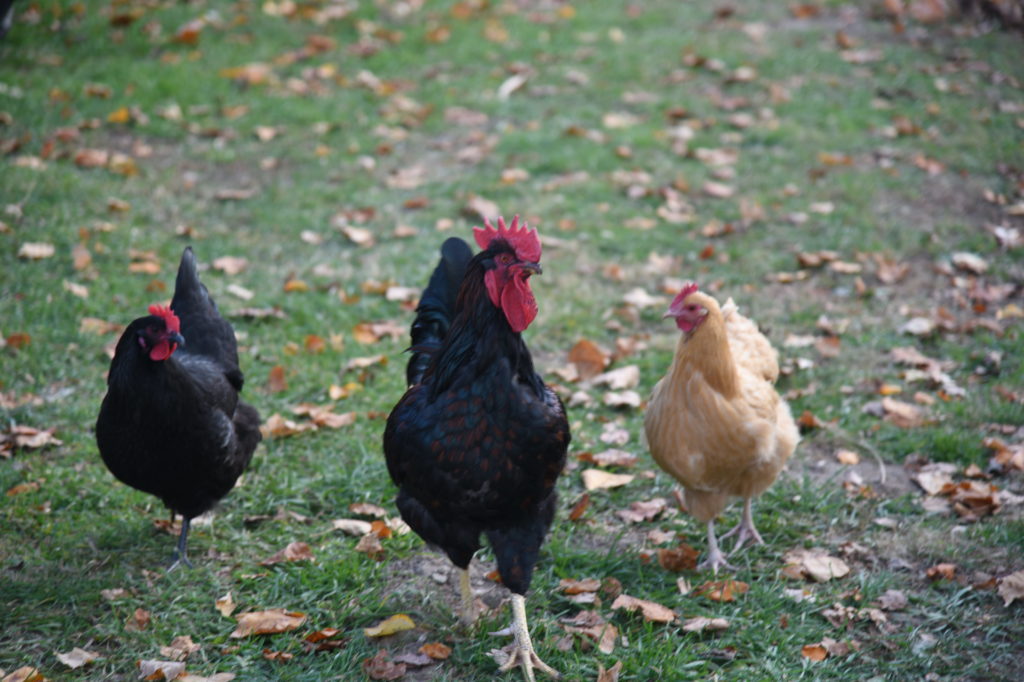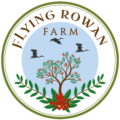
Our Egg chickens
Risks and Convictions…
If you’re not already aware, there’s another flu going around: Avian Influenza. Migratory birds are spreading it, and all US poultry flocks are at risk. Wild birds flying overhead contaminate the ground below, which is how chickens, turkeys, geese, and other farm flocks can catch it. It’s fatal. It’s also highly contagious. If one of our birds dies, likely they will all die. But before they do, the Department of Agriculture will come and cull (kill) our entire flock, so they don’t pass it on to other birds. I don’t have a problem with that. It’s the right thing to do once our chickens are infected.
To prevent Avian Flu from infecting our own chickens, scientists suggest our birds be housed indoors. Under cover. Where wild bird populations cannot gain access or contaminate the ground. Those scientists know a thing or two. They’re not wrong. That’s what it would take to significantly reduce our risk.
The thing is, we raise Pastured Poultry.
Our chickens raised on pasture are cleaner and healthier than birds raised in confinement.
Their meat and eggs are leaner, and they contain more vitamins and Omega-3 fatty acids than from birds in barns.
Pasture-raised poultry also provide benefits to the environment. Come and see how green our grass grows. We’re proud of the organic matter and nutrients returned to our soil. By nourishing the soil, we’re better able to nourish you!
Birds in confined housing cannot compete. Even if they’re ‘cage-free’.
So, what’s a farm girl to do? I’ll be honest, we’ve given it a lot of thought. In our third year of pastured poultry production, it’s the first real test of our identity and commitment to our business model. Cooping up our birds, day-in and day-out, would go against everything we’ve established so far.
Pastured Poultry. We’re committed to this, despite the risk of total loss. Here’s what we will continue to do every day:
- Watch our birds closely and count them daily.
- Implement biosecurity measures when visiting other farms – wearing a different pair of boots, for example.
- Ask visitors to our own farm to wear protective gear if they have likely been near other poultry flocks.
- In the event of illness or unexplained death in our own flock, conduct testing to determine if avian flu is the cause. If it is, we understand this will lead to termination of our flock and loss of our investment. We will begin again another year.
We have dozens of fresh eggs from free-ranged hens available now, and into the foreseeable future. If God’s willing, and the creek don’t rise, we will have pasture-raised, whole broiler chickens available in early June and beyond. We sold out last year, and have doubled our order this season. Let us know if you’re interested – we’ll be happy to reserve a few for you! Thanks for reading.

cronadyn vs priligy S2 and Table 1, incubation of cells in the medium containing paclitaxel 10 ОјM alone for 3 h or 6 h induced significantly cell apoptosis; most of the cells stepped into the early stage of apoptosis